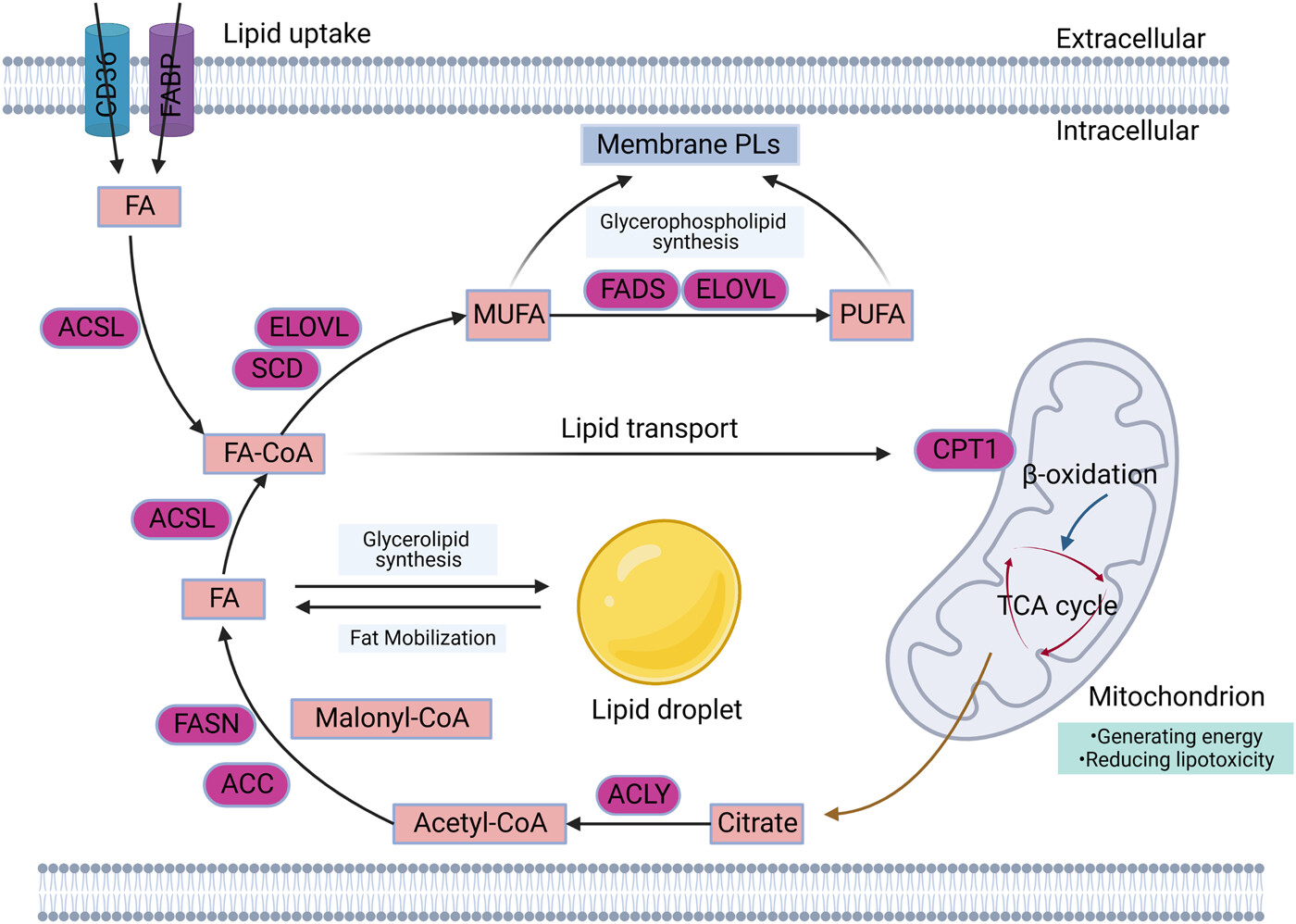MedComm-oncology | Fatty acids in cancer: Metabolic functions and potential treatment

Open the phone and scan

Fatty acid (FA) metabolism in cancer cells. FAs can be de novo synthesized from citrate via ATP citrate lyase (ACLY), acetyl-CoA carboxylase (ACC), and FA synthase (FASN). Exogenous FAs can enter cells through FA-binding protein (FABP) and CD36. Then, FA is converted to FA acyl-CoA (FA-CoA) by acyl-CoA synthetase long chain family member (ACSL). FA-CoA is converted to monounsaturated FA (MUFA) by stearyl-CoA desaturase (SCD) and long-chain FA elongase (ELOVL). MUFA is further converted to polyunsaturated FA (PUFA) by FA desaturase (FADS) and ELOVL. FA-CoA can also be transported into mitochondria by carnitine palmitoyltransferase 1 (CPT1) for β-oxidation. Intracellular FAs can be generated by the fat mobilization of lipid droplets. FAs are also substrates for glycerophospholipid synthesis.
Lipid metabolic reprogramming is one of the important metabolic characteristics of cancer cells. As major components of lipids, fatty acids provide energy and material basis for cancer cell survival. Abnormal fatty acid metabolism has been found in many cancers. Fatty acid uptake, transport, and synthesis are closely related to the pathogenesis of cancer. Meanwhile, fatty acid changes in the membrane structure of cancer cells and signal transduction mediated by signaling lipids are also helping cancer cells survive in the changing microenvironment. Some of these enzymes and metabolites involved in fatty acid metabolism are emerging as unique cancer biomarkers. Multiple studies have shown that disordered fatty acids can regulate tumor cell proliferation, metastasis, and drug resistance. Therefore, targeting fatty acid metabolism has become a promising treatment strategy. Here, we mainly present metabolic alterations of fatty acids, the basic components of lipids, in cancer. We discuss the cancer treatment based on fatty acid and fatty acid metabolism. These may provide a basis for a better understanding of lipid metabolic reprogramming in cancer, and also provide new ideas for cancer biomarker search, drug development, and combination therapy.
Article Access: https://doi.org/10.1002/mog2.25
More about MedComm-Oncology: https://onlinelibrary.wiley.com/journal/27696448
Looking forward to your contributions.


